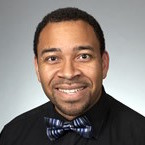 A recent study published in the Journal of the American Board of Family Medicine has found that Black family physicians still remain underrepresented in their field, despite the growing number of diversity efforts that have occurred over the last 30 years.
A recent study published in the Journal of the American Board of Family Medicine has found that Black family physicians still remain underrepresented in their field, despite the growing number of diversity efforts that have occurred over the last 30 years.
The researchers examined the racial and ethnic data provided by family physicians who applied to take the Family Medicine Certification examination between 2013 and 2017. They compared this data to the Census Bureau estimates of the U.S. population and to the number of family physicians who were initially certified between 1987 and 2017.
The results showed that ABFM diplomates who were first certified in 2017 were more than three times as likely to be Asian, more than twice as likely to be native Hawaiian or other Pacific Islander compared with the general population. However, they were only about half as likely to be Black or Hispanic. The number of Whites was nearly identical to that seen in the general population. While the percentage of Black family physicians did see a noticeable increase since 1987, they still remained largely underrepresented when compared to the American population.
In a supplemental commentary, Dr. Kendall Campbell, associate dean for diversity and inclusion and interim senior associate dean for academic affairs at East Carolina University’s Brody School of Medicine, noted the importance of having a diverse workforce. He suggests a number of approaches that should be considered to increase diversity in the field, in addition to the pipeline and outreach programs that already exist. These efforts include exploring community colleges as a pathway to medical school and family medicine, providing more support and resources to universities that already have a large percentage of racial minorities, and creating new medical schools and residency programs at historically Black colleges and universities.
“There is much ground to cover to increase numbers of underrepresented groups in medicine and to continue promoting equity for these groups,” Dr. Campbell wrote. “The future of health care for families and communities depend on it.”

